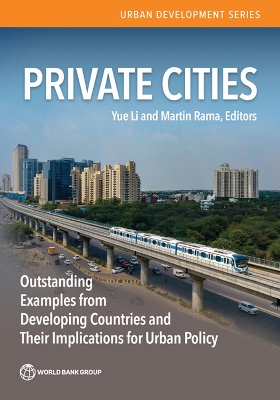Institutional weaknesses limit the capacity of local governments to support efficient urbanization in developing countries. They also lead to the emergence of large developers with the clout to build entire cities. This paper analyzes the urbanization process when local governments are weak and large developers are powerful. Results from a non-cooperative game setting with minimal assumptions show that multiple equilibria can emerge depending on key institutional parameters of the model and the nature of the game, but all of them are inefficient. In this simple setting, increasing the capacity of the local government may not lead to better outcomes, because it may crowd out urban land development by the more effective private investor. Subsidizing the large investor can ensure efficiency, but it makes the rest of society worse off. Selling the rights to the city can be Pareto efficient, but only provided that the price at which the rights are sold are sufficiently high. However, more analytical and empirical work is needed before these analyses can be deemed relevant in practice. Competition among jurisdictions, time consistency challenges, and the social implications of private cities deserve special attention.
- ISBN13 9781464818332
- Publish Date 31 July 2023
- Publish Status Active
- Publish Country US
- Imprint World Bank Publications
- Format Paperback
- Pages 200
- Language English
